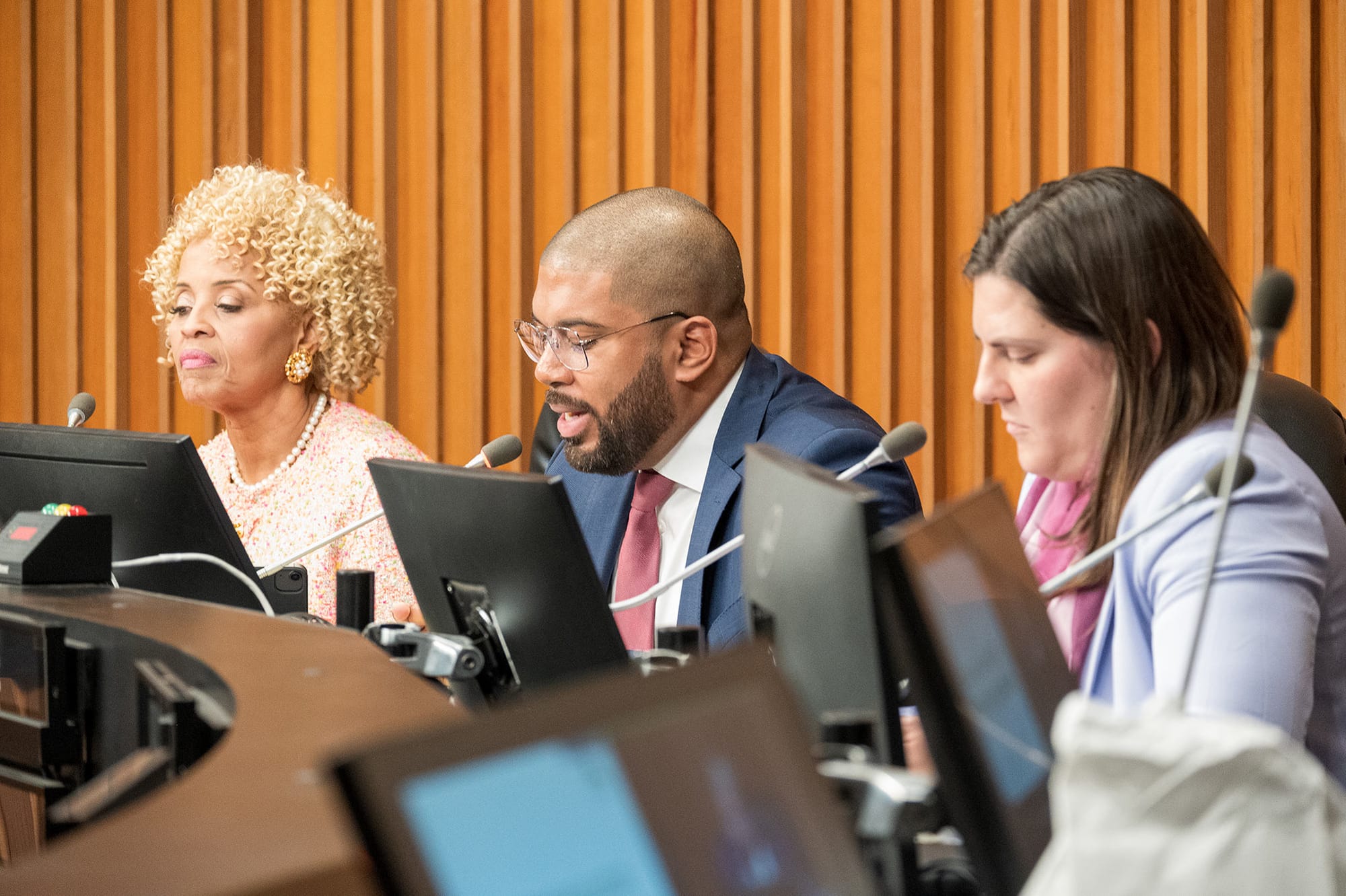VALLEJO – Following voter approval of a seven-eighths-cent sales tax increase, Vallejo officials say the next step will be to create an oversight committee early next year.
The tax increase, identified on the ballot as Measure P, received 55% approval – or 16,923 votes, winning by a final margin of 2,895 votes. The new tax is expected to generate an additional $18 million annually for the city’s coffers.
In a statement to the Vallejo Sun, city spokesperson Christina Lee thanked those who voted last month.
“We appreciate the community's interest in Measure P and thank the thousands of residents who participated in the election,” she said.
Lee said that the next steps will also include “bringing an item back for review regarding the Council's original spending priorities at the December 20th City Council meeting.”
Councilmember Mina Loera-Diaz, District 3 - Glen Cove, one of the more vocal council supporters of the new tax, also thanked city voters “who supported this much needed measure that will bring the revenue we need to move our city forward.”
Loera-Diaz was also a strong supporter of creating a citizens committee to track how money generated by the increase is spent. Loera-Diaz said she will host a town hall meeting in late January to solicit ideas from residents on how the “community and City Staff can come together in developing firm accountability and oversight for Measure P.”
Meanwhile, Mayor Robert McConnell, who opposed placement of Measure P on the ballot, suggested that the city’s Economic Vitality Commission be assigned the task of reviewing Measure P spending instead of the city creating “a new bureaucratic level.”
The measure also calls for an independent auditor who will prepare an annual report on revenues and expenditures associated with the tax increase. The report will be presented to the oversight committee.
“It has long been my desire that the Vallejo City Council has an independent auditor employed by and reportable to the council,” McConnell said. “As Measure P calls for that, perhaps now is the time to also move forward on that; expanding the duties of that independent auditor to the entire budget, and not just Measure P.”
McConnell also said it was his plan to “request council approval for directing staff to once again account separately not only for Measure P funds, but Measure B, and possibly Measure C funds as well.”
Vallejo voters approved Measure B, a 1% sales tax increase, in November 2011. Voters then made the tax permanent in a November 2016 vote. During the same 2011 election, voters approved Measure C, which imposes a business license tax of 10% on cannabis products sold in the city.
By revisiting the goals of those ballot initiatives and auditing how funds are spent, “the council can be respectful of the expressed desire of the voters and not the personal whims of elected officials,” McConnell said.
Measure P faced an uphill climb as city leaders were stung two years ago when voters narrowly rejected a similar tax hike. In 2020, faced with reduced revenues due to the COVID-19 pandemic, city officials asked residents to approve an additional three-quarter-cent sales tax increase to maintain fire and police protection, keep public spaces safe, and support local businesses. The measure failed with 50.57% opposed.
This year, city officials originally sought a special tax to address infrastructure needs but scrapped those plans when a polling firm hired to survey 500 residents determined that such a tax measure was likely to fail. The poll found that about 60% of residents had an unfavorable opinion of the city council, while 67% said they had an unfavorable opinion of the city government overall.
A special tax requires a two-thirds supermajority to pass, while Measure P, a general transaction and use tax, only requires a simple majority of 50% plus 1 to pass. A general transaction and use tax can be spent on most needs in the city, which raised concerns about how the revenue would be spent.
Those against Measure P argued that the tax is regressive in that it taxes the rich and those in most need financially equally and asks the poorest Vallejo residents to contribute more in a challenging economic environment. Those supporting the hike said that it was the only way to address Vallejo's issues and would make the city more appealing to outside businesses and investors.
Loera-Diaz praised two members of the city’s economic vitality commission, Alex Matias and Calvin Harrell, along with David Cates, who she said “were instrumental in helping the measure pass.”
“The Measure P team chose to work on this campaign with transparency, facts and love for our city,” Loera-Diaz said. “One thing that was very important to us was to always suggest to those we spoke to to not take anything at face value but to do their own research so they could confirm the information being presented.”
“Now is the time to put behind the election and to all work towards a common goal,” she added. “There is no better time to invest in our youth, to address our failing roads, the unhoused, excessive amount of trash/blight and our future, than now. We all know that all this can not be done without the much needed revenue.”
Before you go...
It’s expensive to produce the kind of high-quality journalism we do at the Vallejo Sun. And we rely on reader support so we can keep publishing.
If you enjoy our regular beat reporting, in-depth investigations, and deep-dive podcast episodes, chip in so we can keep doing this work and bringing you the journalism you rely on.
Click here to become a sustaining member of our newsroom.
THE VALLEJO SUN NEWSLETTER
Investigative reporting, regular updates, events and more
- government
- Elections
- Measure P
- Vallejo
- Vallejo City Council
- Vallejo City Hall
- Christina Lee
- Robert McConnell
- Mina Loera-Diaz
- Measure B
- Measure C
- Alex Matias
- Calvin Harrell
- David Cates

John Glidden
John Glidden worked as a journalist covering the city of Vallejo for more than 10 years. He left journalism in 2023 and currently works in the office of Solano County Supervisor Monica Brown.
follow me :




